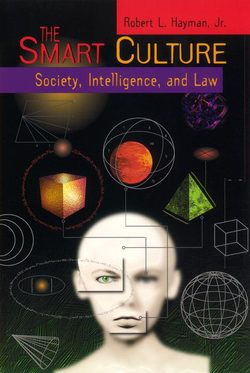Читать книгу The Smart Culture - Robert L. Hayman Jr. - Страница 13
На сайте Литреса книга снята с продажи.
The Original Construction
ОглавлениеThe United States celebrated the bicentennial of its Constitution in 1987, but the celebrations were momentarily interrupted by a dissenting opinion. It was Supreme Court Justice Thurgood Marshall who sounded a more critical note: the Constitution—as originally constructed in 1787—was not, he said, necessarily worth celebrating. Justice Marshall objected to the “complacent belief” that the founding fathers presented us with a finished product two centuries ago, a completed text with a meaning permanently fixed. For Marshall, the Constitution was and remained a living document; it had to be, because the initial effort was so fundamentally flawed:
Nor do I find the wisdom, foresight, and sense of justice exhibited by the framers particularly profound. To the contrary, the government they devised was defective from the start, requiring several amendments, a civil war, and momentous social transformation to attain the system of constitutional governments, and its respect for the individual freedoms and human rights, that we hold as fundamental today.
What Marshall saw in the Constitution of 1787 was principally contradiction: a text that purports to represent the voice of “We the people,” that asserts at the outset a dedication to justice and to liberty, and that is designed to be the governing charter of a nation premised on the self-evident truths of human equality and inalienable rights, in fact excluded from its protections all but a privileged few, and acquiesced in the complete subordination—through chattel slavery—of a substantial part of its citizenry. As Marshall explained, “Moral principles against slavery, for those who had them, were compromised, with no explanation of the conflicting principles for which the American Revolutionary War had ostensibly been fought.”1
Marshall’s statements evoked the predictable howls of protest: his comments were unpatriotic, unseemly, and ill-tempered. But what Marshall’s critics did not say, and what they could not say, was that he was wrong.
The Constitution was written by some very smart people; on this score, Marshall and his critics would agree. But Marshall was revealing an additional, less comfortable truth: that the Constitution was written for “smart” people—it protected, above all, the interests of a natural elite. Rights in property were ascendant; individual interest the priority; liberty the governing principle. It was inevitable in such a scheme that the “diversity in the faculties of men” would lead to social and economic inequality, and there was no communitarian ethic, no egalitarian commitment to mitigate the trend. Quite the contrary: the “first object” of the new government was the preservation of the natural order. The rules it established were those dictated by nature, and they were—naturally—the rules of a rigged game: for those born to lose, it would be very difficult to win.
